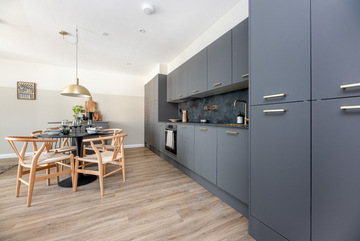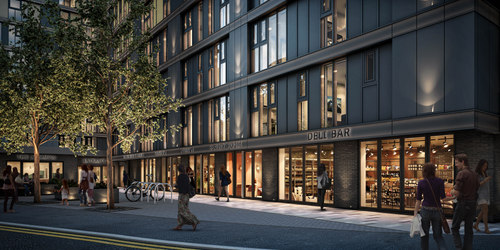- “Taxes pose the greatest threat to buy-to-let investment” (Fabrik Invest)
- Record 228,743 buy-to-let companies up and running
- Around 2,000 buy-to-let mortgage products now available
The UK housing market has, thus far, weathered the COVID storm remarkably well. The Stamp Duty holiday led to an unexpectedly busy 2020, with provisional data from HMRC showing that 121,640 sales went through in January. That’s an increase of 24% year-on-year.
Plenty of families used the holiday to upgrade their home, with space becoming a highly prized commodity as a result of the pandemic. But what about landlords? An increasingly punitive approach to taxation over the past few years has seen the addition of a 3% Stamp Duty surcharge for those buying a second (or subsequent) home, along with a significant reduction in the amount of mortgage interest that landlords can offset against their profits.
Will the impact of this spell danger for the buy-to-let market in 2021? Far from it, according to Dale Anderson, Managing Director of Fabrik Invest.
“Taxes certainly pose the greatest threat to buy-to-let investment in 2021, particularly as government debt has spiralled due to Covid. The Chancellor will be looking at all angles when it comes to rebalancing the books. However, interest in buy-to-let properties in the UK continues to be strong. We still have a major shortage of housing in many areas of the country, along with a growing gap between salaries and property prices. All of this continues to create plenty of demand for rental properties.”
Dale Anderson, Managing Director, Fabrik Invest
The increasingly availability of mortgage products certainly seems to back up the case for interest remaining strong. There are now approximately 2,000 buy-to-let mortgage products available, based on figures from Moneyfacts. That’s a rise of over 500 products since May 2020. Not only that, but lenders are increasingly dropping their requirements when it comes to deposit size. Back in May just 19 buy-to-let mortgages were available to investors with a 20% deposit. That number now stands at 100.
When it comes to taxes, buy-to-let investors are increasingly turning to holding companies in order to make a saving. Investing through limited company is, in many cases, significantly more tax efficient than buying property as an individual. As a result, a record 228,743 buy-to-let companies are now up and running, following a record number being formed in 2020.
“Investors are increasingly using companies to hold their properties, as the savings can run into the thousands for each home that they own. We saw a record number of buy-to-let holding companies formed as a result of this in 2020 and there’s every reason to believe that the same will occur in 2021, as more and more investors seek the most tax efficient setup possible.”
Dale Anderson, Managing Director, Fabrik Invest
Taxation aside, there is one further threat that Fabrik Invest has identified for 2021: the oversupply of rental properties in certain cities, or in particular areas of certain cities.
“Investors really need to do their homework and perhaps focus more heavily on tertiary cities this year. We expect to see smaller cities such as Preston out-performing some of the bigger hitters in 2021, in terms of both capital growth and yields.”
Dale Anderson, Managing Director, Fabrik Invest
This is why Fabrik Invest is focusing on developments such as Bishopgate Gardens right now. Centred around an impressive plaza, the 130 homes and seven retail units are raising the bar for Preston’s rental market. Two show-stopping rooftop gardens, a coffee pod café, an extensive lounge area and a stylish work-from-home space will set new standards for the city’s renters. As a result, investors have been flocking to the scheme, which now has just 14 homes left for sale.
For more information, please contact Fabrik Invest on 020 8175 9891 or enquiries@fabrikinvest.com, or visit www.fabrikinvest.com






